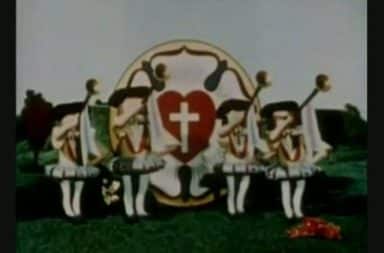Dolls like Last Dances
I’m looking through the attic window—streetlamps from the north end of town— glowing bright enough to catch them with my naked eyes tonight.
There is my breath on the window—the air outside is cool and damp. I feel like standing on the roof and smoking—though Mother always worried—shouted from the ground—when I climbed there as a child—I’ll do it when she’s sleeping tonight.
The mountain we live on is about six miles from the city—neither of us owns a car. I guess it’s hard not to want to leave this place— though this night, I see the orange smolder rise from the little valley—I see just enough navy in the sky for a few of the brighter stars to pop out—I see the moon on occasion—it shoulders through the clouds like a graceful aria through silence—living bright—the city is beautiful dark, too, though I walk there only in day, to buy stamps or batteries or rudimentary tools for fixing things like the kitchen sink. Things I could carry six miles back to our house easily.
We get a nice income from my father’s life insurance—enough to feed us. Enough to keep us sane. Though, we both have our routines—Mother constantly cooks too much—she watches soap operas at night—she reads romance novels religiously.
Crying, cooking, fading into insanity—crying—this is her life here on the mountain— grief. Otherwise, we’re devoted to each other’s loneliness. Or at least, she’s here until I leave—for whatever reason—whatever time I can or do.
But now, I have my routine too—I chose booze—but that’s more of a testament to my father—it is not an obligation to this memory.
I know without it—my father shot himself two years ago—in spring. Before, he drank too—heavily—and he would beat my mother—sometimes unconscious—but mainly just enough to assert his position as capable of causing either of us serious harm. He would grab our necks—push us up in corners—chip our teeth with a back-hand and his wedding band—tell us something we knew—shot himself two years ago.
When the abuse was at its heaviest—savage late-night melees of fist and blood during my first year of middle school—my mother collected dolls—little porcelain baby-faced girls with brown, plastic orbs in eye sockets—dresses that looked and felt like cheap, florid tablecloth. She would call me into her bedroom during the day, have me check them all—she would tell me their names—Lily, Ruth, Susan, Veronica—I would repeat these names to her and she’d change their clothes regularly to throw me off.
On the days I got the names wrong, I would sit following her eyes across the smooth countertops of the bedroom dressers as she smoked and shook her head with such disdain. She told me she loved them like real daughters—loved their fragility—love their innocence.
Now, here they sit—naked—damp—staring at brown walls or out the attic's only window from large, cardboard boxes and the burgundy cushions of musty family furniture. I look out the window again—a train passes at the bottom of our mountain—a steam engine heading north—whistling—a thrilling sign—it dives down into the valley.

